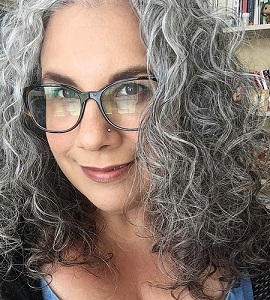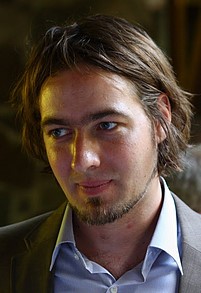Congratulations to the following Kalamazoo College students who received awards during the 2019 Senior Awards Ceremony on Saturday, June 15, at Stetson Chapel. The awards include all academic divisions, prestigious scholarships and special non-departmental awards. Again, congratulations to all graduates and members of the class of 2019.
George Acker Award, awarded annually to a male athlete who in his participation gave all, never quit, with good spirit supported others unselfishly, and whose example was inspirational.
American Chemical Society Certified Degree in Chemistry
- Alex Fairhall
- Sean Patrick Walsh
Hornet Athletic Association Award, for a graduating senior who has most successfully combined high scholarship with athletic prowess.
James Bird Balch Prize in American History, for showing academic excellence in American history.
Lillian Pringle Baldauf Prize in Music, awarded to an outstanding music student
Lewis Batts Prize, awarded to seniors who have done the most to support the activities of the Biology Department and to further the spirit of collegiality among students and faculty.
- Molly Logsdon
- Nkatha Mwenda
Bruce Baxter Memorial Award, awarded to a senior showing outstanding development in the field of political science.
- Lauren Arquette
- Natalie Thompson
Gordon Beaumont Memorial Award, awarded to students who display qualities of selflessness, humanitarian concern and willingness to help others as exemplified in the life of Gordon Beaumont.
- Anthony Diep Rosas
- Malak Ghazal
Larry Bell Scholar
The Biology in Liberal Arts Prize
- Hayleigh Alamo
- Emily Palmer Norwood
- Maren Prophit
Marshall Hallock Brenner Prize, awarded to an outstanding student for excellence in the field of psychology.
- Sophie Olivia Stone Higdon
Henry and Inez Brown Award, awarded in recognition of outstanding participation in the College community.
- Alex Cadigan
- Sarah George
- Nicholas Ludka
- Amanda Faye Moss
Clara H. Buckley Prize for Excellence in Latin, awarded to an outstanding student of the language of the Romans.
- Chelsea Leia’Louise Miller
Mary Long Burch Award, for a senior woman who has manifested interest in sports activities and excelled in scholarship.
Robert Bzdyl Prize in Marine Biology, awarded to one or more students with demonstrated interest and ability in marine biology or related fields.
Annual Undergraduate Award in Analytical Chemistry, sponsored by the American Chemical Society Division of Analytical Chemistry, to an undergraduate student planning on pursuing graduate studies in chemistry.
Annual Undergraduate Award in Inorganic Chemistry, sponsored by the American Chemical Society Division of Inorganic Chemistry, to an undergraduate student planning on pursuing graduate studies in chemistry.
Annual Undergraduate Award in Organic Chemistry, sponsored by the American Chemical Society Division of Organic Chemistry, to an undergraduate student planning on pursuing graduate studies in chemistry.
Annual Undergraduate Award in Physical Chemistry, sponsored by the American Chemical Society and subcommittee for the Division of Physical Chemistry, to an undergraduate student who displays significant aptitude for a career in organic chemistry.
Outstanding Chemistry Student from Kalamazoo College, sponsored by the Kalamazoo Section of the American Chemical Society and is given to the graduating senior who has demonstrated leadership in the chemistry department and plans to pursue graduate studies in chemistry.
Lilia Chen Award in Art, awarded to students in their junior or senior year who distinguish themselves through their work in ceramics, sculpture, or painting, and who exhibit strong progress in their understanding of art.
- Hayleigh Alamo
- Qynce B. Chumley
- Kaiya Noelle Herman Hilker
Ruth Scott Chenery Award, given to graduating seniors who have excelled academically in theatre and who plan to continue the study of theatre arts following graduation.
Chinese Outstanding Achievement Award, which recognizes seniors who have excelled in the study of the Chinese language and China-related subjects on campus and abroad in China.
- Molly Pan-Wei Brueger
- Cameron Lund
- Kimberly Yang
Provost’s Prize in Classics
- Mara Hazen
- Noura Al Sabboury Khayat
Provost’s Prize in Computer Science
C.W. “Opie” Davis Award, awarded to the outstanding senior male athlete
DeMoore/Vonk Scholars
Diebold Scholar Award, given to one or more seniors in recognition of excellence in the oral or poster presentation of the SIP at the Diebold Symposium.
- Sung Soo Park
- Audrey Thomas
- Taylor VanWinkle
George Eaton Errington Prize, awarded to outstanding senior art majors.
- Kaiya Noelle Herman Hilker
Provost’s Prize in Economics
- Andrew Parsons
- Zachary Mark Van Faussien
Alliance Francaise Prize in French, awarded to outstanding senior art majors.
- Daniel Horwitz
- Sabrina Leddy
Joe Fugate Senior German Award, awarded to a senior for excellence in German.
- Katherine Bennett
- Timothy DeCoursey
- Emma Eisenbeis
- Ian Freshwater
- Madeline Lauver
Departmental Prize in Greek
Xarifa Greenquist Memorial Psychology Department Award, given in recognition of distinctive service to students and faculty in psychology by a student assistant.
- MaryClare C. Colombo
- Mengqiao Guo
- Sara Lonsberry
Griffin Prize, awarded to the senior English major who, like Professor Gail Griffin, demonstrates an exceptional ability to bridge his or her analytical and creative work in the English department.
Ham Scholar
The Raymond L. Hightower Award, given to a graduating senior for excellence in and commitment to the disciplines of sociology and anthropology and leadership in the Department of Anthropology and Sociology.
- Yuridia Luciana Gutierrez-Garcia
- Hannah Muscara
Virginia Hinkelman Memorial Award, awarded to a deserving student who displays a deep concern for the well-being of children, as demonstrated through career goals in the field of child welfare.
History Department Award, given for outstanding work in the major
Hodge Prize in Philosophy, awarded to members of the graduating class who have the highest standing in the field.
John Wesley Hornbeck Prize, awarded to seniors with the highest achievement for the year’s work in advanced physics toward a major.
- Kevin Bhimani
- Abhjeet Bhullar
- Anna Emenheiser
William G. Howard Memorial Prize, awarded to a senior for excellence in academic work in an economics or business major.
William G. Howard Memorial Prize in Political Science
Japanese National Honor Society, College Chapter, awarded in recognition of student achievement in their study of the Japanese language and their overall academic excellence.
- Molly Pan-Wei Brueger
- Kebra Cassells
- Tiffany Ellis
- Amanda Marie Esler
- Ihechiluru Ezuruonye
- Alex Fairhall
- David A. Gurrola
- YoungHoon Kim
- Annelise Lee
- Kayla Marciniak
- Emma Mullenax
- Louise Thomas
Kurt Kaufman Fellow, given annually to seniors who receive Honors in the Senior Individualized Project (SIP) conducted with faculty in the Chemistry Department.
Moses Kimball Student Scholar
- Michelle Alba-Sanchez
- Sharat Kamath
- Alejandra Morales
Richard D. Klein Senior Award in Psychology
- Tapiwa Chikungwa
- Druanna Darling
- Hadiya Deas-Richberg
- Kai Lin Shi
- Patricia Spitzer
Richard D. Klein Senior Impact Award in Psychology
Knoechel Family Award, awarded to a member of the swimming team in recognition of demonstrated excellence in both intercollegiate swimming and academic performance.
- Molly Logsdon
- Sharif Shaker
Irmgard Kowatzki Theatre Award, awarded to the senior who has excelled both in academic areas and in theatrical productions during the four years at the College.
LaPlante Student Scholars, for outstanding dedication to civic engagement while designing and leading community programs that promote a more just, equitable and sustainable world.
- Meredith Ashton
- Tapiwa Chikungwa
- Gus Guthrie
- Sara Lonsberry
- Nicholas Ludka
Tish Loveless Award, given by the Department of Physical Education to the outstanding senior female athlete.
Music Department Certificate of Distinction
- Mackenzie Callahan
- Amira Kamoo
- Madeline Lauver
- Sara Lonsberry
- Jake Mooradian
- Kayla Park
- Quintin Rykar Sproull
- Evan Stark-Dykema
Department of Philosophy Prize, awarded for excellence in any year’s work in philosophy.
William E. Praeger Prize in Biology, established by the faculty in the Biology Department and awarded to the most outstanding senior majors in biology, based on academic achievement in the discipline.
Robert and Karen Rhoa Prize in Business
Robert and Karen Rhoa Prize for Outstanding SIP
Elwood H. and Elizabeth H. Schneider Prize in English, awarded for outstanding and creative work in English done by a student who is not an English major.
- Yuridia Luciana Gutierrez-Garcia
Senior Leadership Recognition Award, awarded to students who have provided key elements of leadership in their organizations, athletic teams, academic departments, employment, and the wider Kalamazoo community. Students were nominated by faculty and staff members in January. Seniors eligible for this award also had to meet a minimum cumulative Grade Point Average requirement and be in good academic and social standing at the College.
- Hayleigh Alamo
- Lauren Arquette
- Max Gordon Aulbach
- Jacob Bonifacio
- Molly Pan-Wei Brueger
- Alex Cadigan
- Tapiwa Chikungwa
- Qynce B. Chumley
- Emma Eisenbeis
- Ian Freshwater
- Sara George
- Sharat Kamath
- Sabrina Leddy
- Joy Lim
- Nicholas Ludka
- Cydney Morgan Martell
- Ian McKnight
- Hannah Meyers
- Zachary Jorge Morales
- Amanda Faye Moss
- Nkatha Mwenda
- Marco Antonio Ponce
- Shivani Rana
- Cecilia Catherine Ringo
- Anthony Diep Rosas
- Sharif Shaker
- Regina Shaw
- Allen Vinson
- Jordan Wiley
- JayLashay Young
Fan E. Sherwood Memorial Prize
Catherine A. Smith Prize in Human Rights, awarded to a senior who has been active on campus in promoting human rights, furthering progressive social and cultural change, and combating violence, repression and bigotry.
Catherine A. Smith Prize in Women’s Athletics, awarded to a woman athlete who in her participation gave all, never quit, with good spirit supported others unselfishly, and whose example was inspirational.
Lemuel F. Smith Award, given to a student majoring in chemistry pursuing the American Chemical Society approved curriculum and having at the end of the junior year the highest average standing in courses taken in chemistry, physics and mathematics.
Senior Spanish Award, given by the Department of Romance Languages for outstanding achievement in Spanish.
Eugene P. Stermer Award in Public Administration
- Ailih Suzanne Elizabeth Weeldreyer
Mary Clifford Stetson Prize, awarded for excellence in English essay writing by a senior.
Dwight and Leola Stocker Prize, awarded for excellence in English writing, prose or poetry.
- Meredith Ashton
- Gaby Cordova
- Madeline Lauver
Lucinda Hinsdale Stone Prize in Women’s Studies
- Samantha Choknumtumnukit
- Cecilia Ringo
David Strauss Prize in American Studies, awarded for the best paper written by a graduating senior in his or her junior or senior year in any field of American Studies.
Babette Trader Campus Citizenship and Leadership Award, awarded to members of the graduating class, who have most successfully combined campus citizenship and leadership with scholarship.
- Michelle Alba-Sanchez
- Ian McKnight
Margaret Upton Prize in Music
Donald W. VanLiere Prize Psychology in Coursework
- Rachel Girard
- Sophie Olivia Stone Higdon
- Claire Amelia Kalina
- Sara Lonsberry
- Lydia Turke
Donald W. VanLiere Prize Psychology in Research
- Sonah Bahl
- Rachel Girard
- Chelsea Leia’Louise Miller
Michael Waskowsky Prize, awarded to outstanding junior or senior art majors.
Charles Lewis Williams Jr. Award, awarded for oratory at the English SIP Symposium
Clarke Benedict Williams Prize, awarded to that member of the graduating class who has the best record in mathematics and the allied sciences.
- Allegra Allgeier
- Alex Cadigan
- Natalie Thompson
Maynard Owen Williams Memorial Award, for the best student entry in the form of an essay, poetry, paintings, sketches, photographs or films derived from study abroad.
- Grace Beck
- Ximena Davis
- Anna Emenheiser
- Malak Ghazal
- Mackenzie Landman
- Madeline Lauver
- Maxwell Palese
- Kayla Park
- Angelica Rodriguez
- Tanush Samson
- Paige Tobin
- Maya Wanner
















